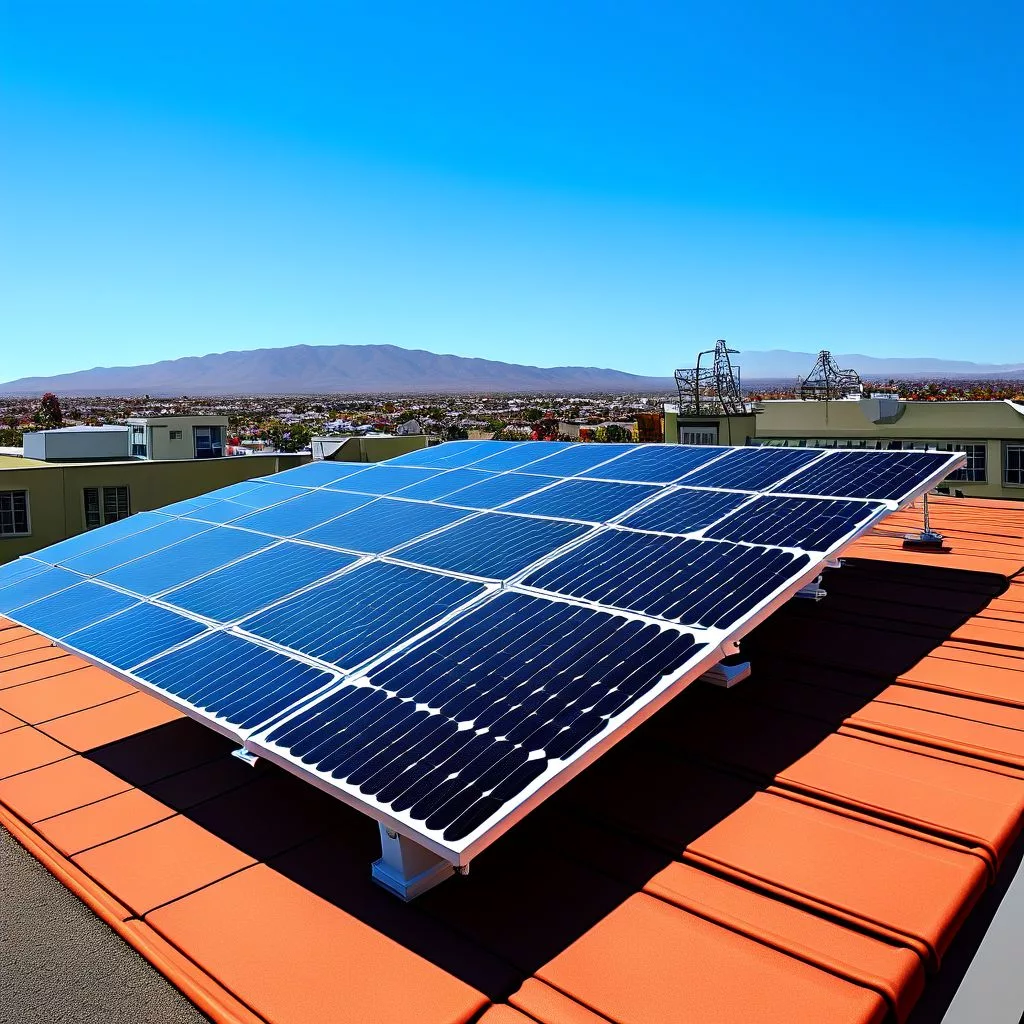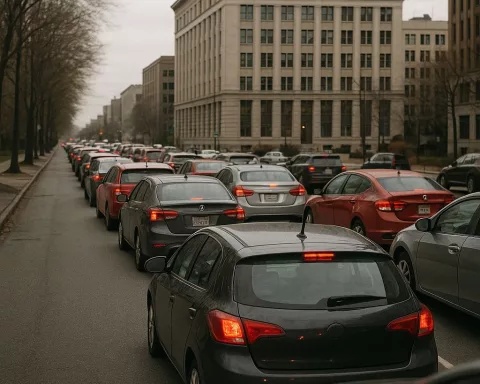Cape Town residents are finding hope in solar energy through GoSolr’s subscription model, which promises to cut electricity bills while ensuring users save more than with Eskom. This easy-to-understand plan guarantees no financial risk; if savings fall short, GoSolr covers the difference. With Cape Town’s sunny climate, families not only gain financial relief but also energy independence, especially during power outages. By choosing solar, they are taking a big step toward a greener future and helping the planet at the same time. It’s a bright solution for a brighter tomorrow!
How Can Solar Energy Help Cape Town Residents Save on Electricity Bills?
Solar energy, through GoSolr’s subscription model, offers Cape Town residents guaranteed savings on electricity bills. Users can save more than their usual Eskom costs, with GoSolr covering any shortfalls. This zero-risk approach promotes energy independence and supports environmental sustainability.
Navigating the escalating living costs in South Africa has become a sophisticated balancing act for many households. With the recent increase in VAT and soaring electricity tariffs, residents of Cape Town, in particular, find themselves grappling with heightened financial pressures. In this context, GoSolr has emerged as a beacon of hope, offering a compelling solution to the perennial problem of rising electricity bills. The company guarantees that users will save on their overall electricity expenditure with a GoSolr solution. If they don’t, GoSolr promises to cover the difference.
The Promise of Savings
GoSolr’s offer is both straightforward and reassuring. For those subscribed to a GoSolr medium or large plan, the total expenditure on solar and grid electricity will be less than what they would usually pay to Eskom, the primary electricity supplier in South Africa. This promise comes with a financial safety net: if the savings do not materialize, GoSolr covers the shortfall. This guarantee is contingent upon a minimum electricity bill of R3,000 per month for the medium plan and R4,000 for the large plan.
Rushil Rattan, the CFO of GoSolr, emphasizes the importance of smart energy management in achieving these savings. “We fine-tune solar performance to reflect market shifts and ensure every user gets maximum financial benefit. If you don’t save, we pay the difference,” says Rattan.
How Savings Are Calculated
The process of assessing savings is meticulous and data-driven. The evaluation period spans 12 months, starting from the day the GoSolr system is installed. During this period, the company tracks energy costs and compares them to what users would have incurred with Eskom alone. At the end of the year, GoSolr reviews the utility bills and historical Eskom costs. If the costs with the GoSolr system are higher, the company steps in to cover the difference. For smaller discrepancies, less than two months’ subscription fees, a credit is applied to future bills. For larger amounts, GoSolr makes a direct payment into the customer’s bank account within 30 days.
This approach eliminates financial risk and instills confidence in households contemplating the switch to solar energy.
Why Cape Town is Embracing Solar
Residents of Cape Town are particularly well-positioned to benefit from GoSolr’s zero-risk solar model. The guaranteed savings offer provides a compelling incentive for households to transition to solar energy without the fear of incurring additional costs. But the advantages extend beyond mere financial savings. GoSolr’s smart solar technology ensures energy independence, keeping homes powered even during loadshedding, a frequent occurrence in South Africa.
Moreover, the switch to solar energy aligns with broader environmental goals. By reducing reliance on traditional energy sources, households can significantly lower their carbon footprints, contributing to global sustainability efforts. This dual benefit of financial and environmental gains makes solar energy an attractive proposition for many.
The Broader Context of Solar Energy
The rise of solar energy as a viable alternative to traditional power sources is part of a larger global movement towards sustainable energy solutions. Technological advancements have significantly reduced the costs associated with solar power, making it more accessible to a broader audience. Concurrently, the rising utility rates make traditional energy sources increasingly unaffordable. In South Africa, where Eskom tariffs are continually climbing, the search for cost-stable alternatives has become more urgent.
Rattan notes that “South Africans are increasingly looking for cost-stable alternatives. Solar offers not just long-term savings but backup readiness for planned and unplanned outages. At GoSolr, we’re seeing strong demand from households and businesses wanting to take control of their energy future. Our subscription model makes it easier than ever to access solar without the upfront cost. It’s a practical solution to an increasingly urgent problem.”
The Artistic and Historical Resonance
The shift towards solar energy can be seen as part of a larger historical and artistic movement towards sustainability and self-sufficiency. Throughout history, periods of innovation have often coincided with a return to more sustainable practices. The Arts and Crafts Movement of the late 19th century, for instance, emphasized handcrafted goods and natural materials as a reaction against industrialization. Similarly, the contemporary push for renewable energy sources reflects a desire to return to more harmonious and sustainable ways of living.
In the realm of art, the increasing visibility of environmental themes reflects society’s growing awareness of ecological issues. Artists like Olafur Eliasson, known for his installations that explore climate change and renewable energy, highlight the intersection of art, technology, and sustainability. These cultural shifts underscore the broader societal movement towards eco-friendly practices and technologies.
The Future of Solar Energy
The future of solar energy looks promising, particularly in regions like Cape Town where the sun is a plentiful resource. As technology continues to advance and costs continue to fall, solar energy will likely become even more accessible and affordable. The subscription model adopted by companies like GoSolr represents a significant innovation in making solar power attainable for a wider audience.
The transition to solar energy is not just a practical response to rising costs and environmental concerns. It also represents a broader cultural shift towards sustainability and self-sufficiency, echoing historical movements that have sought to harmonize human activity with the natural world. By embracing solar energy, households in Cape Town are not only securing their financial future but also contributing to a more sustainable and equitable world.
“`markdown
FAQ about Solar Energy and GoSolr in Cape Town
1. How does the GoSolr subscription model work for saving on electricity bills?
The GoSolr subscription model provides Cape Town residents with guaranteed savings on their electricity bills compared to traditional Eskom costs. If the savings do not meet expectations, GoSolr will cover the difference, ensuring no financial risk for users.
2. What are the eligibility requirements for the GoSolr savings guarantee?
To qualify for GoSolr’s savings guarantee, users must maintain a minimum electricity bill of R3,000 per month for the medium plan and R4,000 for the large plan. This setup ensures that larger households can benefit from the reduced costs of solar energy.
3. How are savings calculated with the GoSolr system?
Savings are calculated over a 12-month evaluation period after the GoSolr system is installed. The company tracks energy costs, comparing them to what users would have incurred with Eskom. If costs are higher with GoSolr, the company will either apply a credit or make a direct payment to cover the difference.
4. Why is solar energy particularly beneficial for Cape Town residents?
Cape Town’s sunny climate enhances the effectiveness of solar energy, allowing families to enjoy energy independence, especially during frequent power outages known as loadshedding. Additionally, choosing solar helps reduce carbon footprints and contributes to global sustainability efforts.
5. What additional benefits does the GoSolr subscription model offer?
Beyond financial savings, GoSolr’s model supports energy independence and environmental sustainability. The service ensures continuous power supply during outages, making it a practical solution for modern energy needs, while also aligning with broader goals of reducing reliance on traditional energy sources.
6. How does the future of solar energy look for Cape Town and beyond?
The future of solar energy in Cape Town appears promising, with technological advancements making it more accessible and affordable. GoSolr’s innovative subscription model is expected to drive further adoption of solar power, underscoring a cultural shift towards sustainability and self-sufficiency in energy consumption.
“`












